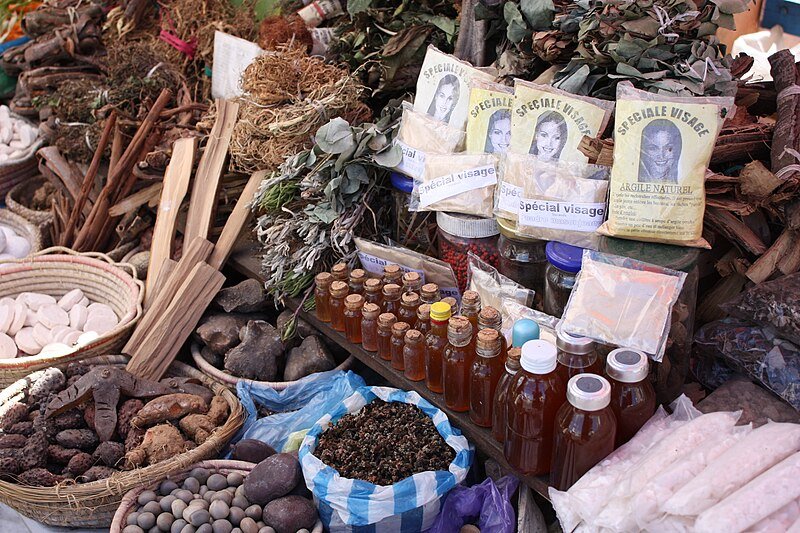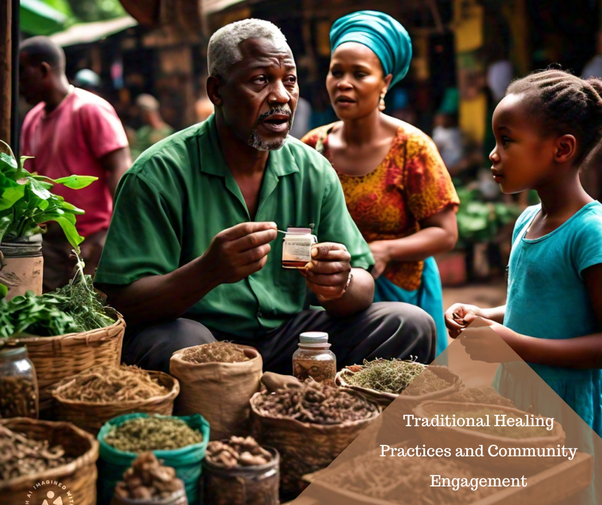When you think about Nigeria, what comes to mind? The vibrant culture, delicious cuisine, and, of course, its rich tradition of healing practices. Traditional healing practices in Nigeria are deeply rooted in the country’s diverse cultures and have been passed down through generations. They offer an intriguing blend of spirituality, herbal medicine, and community-based approaches that are still very much alive today.
The Roots of Traditional Healing Practices in Nigeria

Traditional healing practices in Nigeria have been around for centuries, long before the advent of modern medicine. These practices are a blend of the indigenous knowledge of medicinal plants, spiritual healing, and cultural rituals. Each ethnic group in Nigeria has its unique approach to healing, but common threads run through them all.
Spiritual Healing
Spiritual healing is a significant component of traditional healing practices in Nigeria. Many believe that illnesses can have spiritual causes, and thus, spiritual remedies are often sought. This can involve rituals, prayers, and sacrifices to appease the spirits or gods believed to be responsible for the ailment.
Herbal Medicine
Herbal medicine is perhaps the most well-known aspect of traditional healing in Nigeria. Healers, often called herbalists or traditional doctors, use a variety of plants and natural substances to treat ailments. These remedies are based on an extensive knowledge of the medicinal properties of local plants.
Divination and Diagnosis
In traditional Nigerian healing practices, diagnosing an illness often involves divination. Healers might use cowrie shells, kola nuts, or other tools to communicate with the spiritual world and determine the cause of an illness. This method is deeply intertwined with the cultural and spiritual beliefs of the community.
Prominent Traditional Healing Practices Across Nigeria
Nigeria is home to numerous ethnic groups, each with its distinctive healing practices. Let’s take a closer look at some of the most prominent ones.
Yoruba Healing Practices
The Yoruba people, predominantly found in southwestern Nigeria, have a rich tradition of healing practices. Yoruba traditional healers, known as Babalawos (for men) and Iyalawos (for women), are revered for their knowledge of herbal medicine and spiritual healing. They often perform rituals to Orunmila, the god of wisdom and divination, to seek guidance in treating ailments.
Places of Note
- Osogbo Sacred Grove: This UNESCO World Heritage Site is a sacred forest along the banks of the Osun River. It’s a significant site for Yoruba spirituality and healing.
- Ile-Ife: Considered the spiritual heart of the Yoruba people, this city is home to many traditional healers.
Igbo Healing Practices
In southeastern Nigeria, the Igbo people have their own set of traditional healing practices. Dibia (traditional healers) play a crucial role in Igbo communities. They use herbs, spiritual rites, and divination to heal and protect against diseases.
Places of Note
- Arochukwu: This town is famous for its Ibini Ukpabi oracle, an ancient oracle used for divination and healing.
- Nsukka: Home to many traditional healers who specialize in herbal medicine.
Hausa-Fulani Healing Practices
In northern Nigeria, the Hausa and Fulani people have a unique approach to healing. Traditional healers, known as Bokaye, use a combination of Islamic and indigenous practices. They often prescribe herbal remedies and spiritual prayers.
Places of Note
- Sokoto: A significant center for Islamic scholarship and traditional healing.
- Kano: Known for its rich history and numerous traditional healers.
Edo Healing Practices
The Edo people of southern Nigeria have a long history of traditional healing practices. The Ohen (priests) and Ohenren (priestesses) are well-versed in herbal medicine and spiritual healing rituals.
Places of Note
- Benin City: The heart of Edo culture and a hub for traditional healing practices.
The Role of Traditional Healers in Nigerian Society
Traditional healers are highly respected figures in Nigerian communities. They are often the first point of contact for people seeking medical help, especially in rural areas where modern healthcare facilities may be scarce. These healers provide not only medical treatment but also spiritual guidance and counseling, playing a vital role in the social and cultural fabric of their communities.
Common Practices and Remedies
Traditional healing practices in Nigeria are diverse, but some common practices and remedies can be found across different ethnic groups.
Herbal Remedies
Herbal remedies are the cornerstone of traditional healing in Nigeria. Some commonly used herbs include:
- Neem (Dogonyaro): Used for malaria treatment.
- Bitter Leaf (Vernonia amygdalina): Known for its anti-inflammatory and anti-microbial properties.
- Scent Leaf (Ocimum gratissimum): Used for respiratory issues and digestive problems.
Spiritual Cleansing
Spiritual cleansing rituals are performed to rid individuals of negative energies or spirits believed to be causing illness. This can involve the use of water, herbs, and specific rituals conducted by a healer.
Bone Setting
Traditional bone setting is a common practice in Nigeria. Traditional healers use their hands and herbal compresses to treat fractures and dislocations. This practice is particularly prevalent among the Igbo and Yoruba people.
Massage and Body Manipulation
Massage and body manipulation techniques are used to relieve pain and improve circulation. These techniques often accompany herbal treatments and are performed by skilled practitioners.
Challenges Facing Traditional Healing Practices in Nigeria
Despite their deep roots and widespread use, traditional healing practices in Nigeria face several challenges.
Integration with Modern Medicine
One of the primary challenges is the integration of traditional healing practices with modern medicine. There is often a lack of cooperation and understanding between traditional healers and modern healthcare providers, which can hinder the overall effectiveness of healthcare delivery.
Regulation and Standardization
Traditional healing practices are largely unregulated, which can lead to variations in the quality and safety of treatments. Efforts to standardize and regulate these practices are essential to ensure the well-being of patients.
Preservation of Knowledge
As modernization continues, there is a risk that the knowledge of traditional healing practices could be lost. Younger generations are increasingly moving away from traditional ways, and the oral transmission of knowledge from healer to apprentice is becoming less common.
Conclusion
Traditional healing practices in Nigeria offer a fascinating glimpse into the country’s rich cultural heritage. These practices, passed down through generations, continue to play a crucial role in the lives of many Nigerians. From the spiritual rituals of the Yoruba to the herbal remedies of the Igbo, each ethnic group brings its unique approach to healing. While challenges remain, there is immense potential for integrating these age-old practices with modern medicine, ensuring they continue to thrive for generations to come.
Frequently Asked Questions
1. What are traditional healing practices in Nigeria?
Traditional healing practices in Nigeria encompass a range of methods, including herbal medicine, spiritual healing, divination, and physical therapies. These practices are deeply rooted in the cultural and spiritual beliefs of various ethnic groups.
2. Are traditional healers still relevant in modern Nigeria?
Yes, traditional healers remain highly relevant, particularly in rural areas where access to modern healthcare can be limited. They provide essential medical and spiritual support to their communities.
3. What are some common herbs used in Nigerian traditional medicine?
Common herbs include neem (Dogonyaro), bitter leaf (Vernonia amygdalina), and scent leaf (Ocimum gratissimum), each known for its specific medicinal properties.
4. How do traditional healers diagnose illnesses?
Traditional healers often use divination tools like cowrie shells or kola nuts to communicate with the spiritual world and determine the cause of an illness.
5. Can traditional healing practices be integrated with modern medicine?
Yes, there is potential for integration, but it requires mutual respect and understanding between traditional healers and modern healthcare providers. Efforts are ongoing to create a more cohesive healthcare system.
6. Are traditional healing practices regulated in Nigeria?
Currently, traditional healing practices are largely unregulated, which can pose challenges for ensuring the safety and efficacy of treatments. There are ongoing discussions about how best to regulate these practices.

